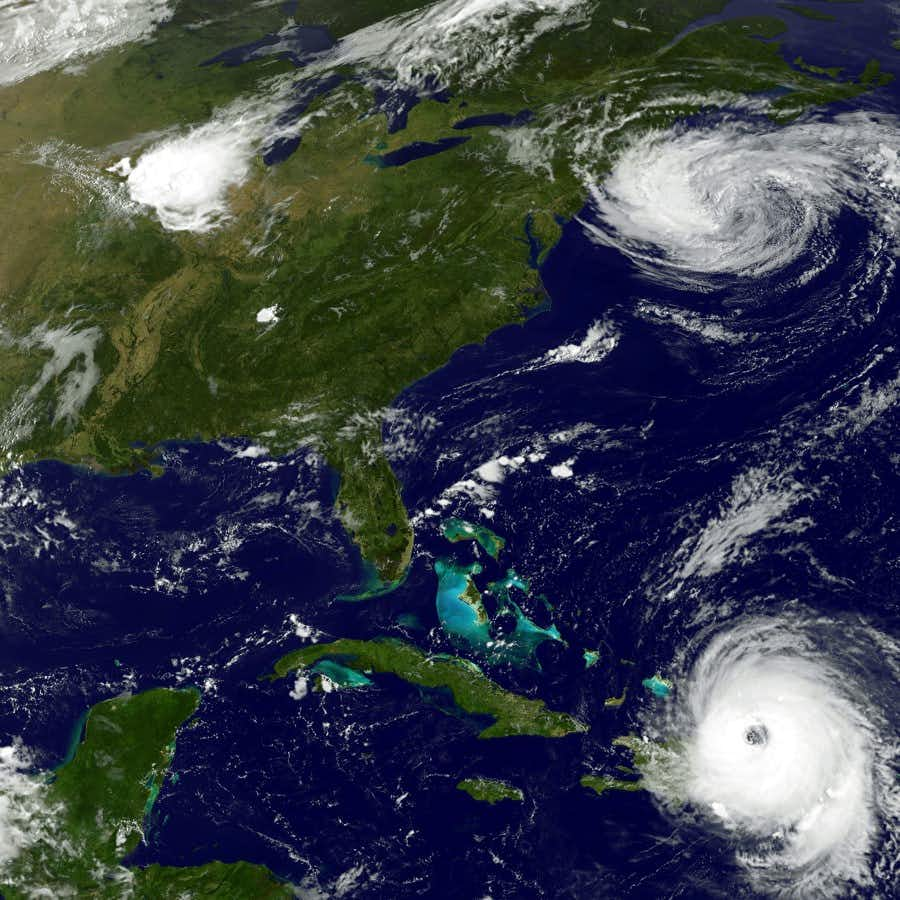
The Health Impact of Environmental Disaster
Since 1995, the world has experienced twenty of the hottest years on record. The wildfires raging across western states are expected to burn more acreage than last year’s devastating fires. Hurricanes like Sandy, Harvey, Irma and Maria have caused enormous destruction. And less conspicuously but just as ominous, carbon dioxide levels in the atmosphere have been creeping up. How does such environmental disaster affect human health?
Here is a link to an analysis of how ongoing changes in climate will affect heat waves: http://www.climatecentral.org/gallery/maps/days-above-100f-projections
And, if you need a bit more info on heat waves, this is from the Washington Post.
CO2 and Food Crops:
You might imagine that plants exposed to extra carbon dioxide would grow more quickly, perhaps providing extra food for an increasing human population. But did you know that a number of food crops have lower levels of crucial nutrients like zinc, iron, protein and certain B vitamins when they grow under conditions of enriched CO2 in their atmosphere? How will this alter the nutritional status of the populations that depend on these crops?
Infectious Diseases and Their Vectors:
As climate patterns change, arthropods like ticks and mosquitoes move around and adapt. A number of these blood-sucking critters carry dangerous diseases like Zika virus, dengue fever, chikungunya, Lyme disease or Powassan virus. Will warmer winter temperatures allow them to spread into new territory? Will the diseases go with them?
What about malaria? It was once a serious public health menace for the eastern seaboard of the United States. Will it make a comeback?
Mental Health Effects of Climate Change:
Many people are extremely distressed by the idea of global climate changes and environmental disaster. Can parents help their children develop psychological resilience in the face of such challenges? What can people do to feel more empowered?
This Week’s Guests:
Sam S. Myers, MD, MPH, is Director of the Planetary Health Alliance. He is a principal research scientist in the Department of Environmental Health at the Harvard T. H. Chan School of Public Health. Dr. Myers works in the emerging field of planetary health, focused on the human health impacts of global environmental change.
Websites: http://environment.harvard.edu/about/faculty/samuel-myers and https://planetaryhealthalliance.org
Jonathan Patz, MD, MPH, is Professor and John P. Holton Chair of Health and the Environment at the University of Wisconsin. He is Director of the Global Health Institute.
Website: Citizens Climate Lobby. https://citizensclimatelobby.org
Lise Van Susteren, MD, is a psychiatrist in private practice in Washington, DC. A climate activist, she has a special interest in the psychological effects of climate change.
Website: Climate Neutral Now https://unfccc.int/climate-action/climate-neutral-now
Listen to the Podcast:
The podcast of this program will be available the Monday after the broadcast date. The show can be streamed online from this site and podcasts can be downloaded for free. CDs may be purchased at any time after broadcast for $9.99.
Download the free mp3: Select MP3 from the pulldown that says “Choose CD or MP3 version”

